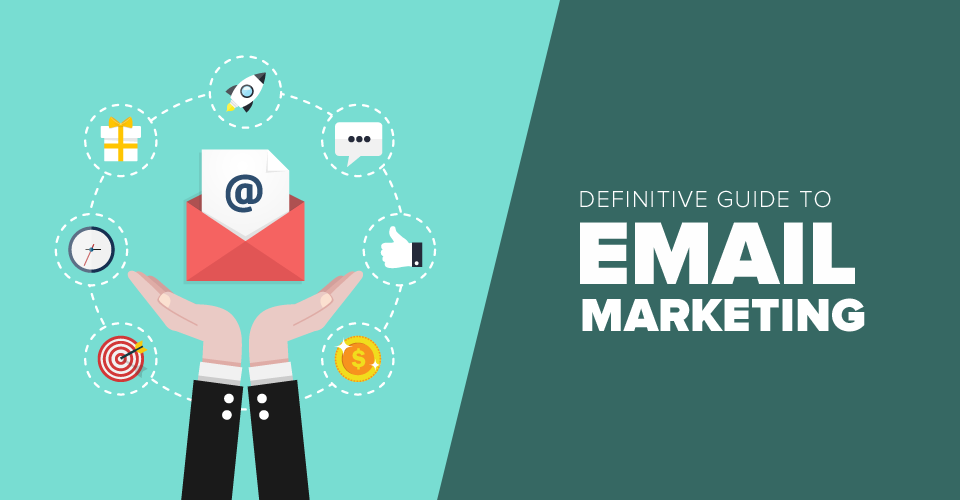Email Marketing / Email Marketing Strategies / Email Marketing Laws and Regulations / Email List Building / Email Content and Copywriting / Design and Visual Elements / Call to Action (CTA) Optimization / Testing and Optimization / Email Marketing Software / Marketing Automation / Email Analytics and Tracking / List Management and Segmentation / Segmentation Strategies / Re-engagement Campaigns / Email Marketing Best Practices / Deliverability and Inbox Placement / Personalization and Customer Relationship / Future Trends and Innovations in Email Marketing / Interactive Email Content / Privacy and Data Protection
What is Email Marketing and Its Importance in Digital Marketing:
Email marketing is a powerful digital marketing strategy that involves sending targeted messages and promotional content to a group of individuals via email. This direct communication channel enables businesses to engage with their audience, nurture leads, and build lasting relationships. The significance of email marketing in the broader digital marketing landscape lies in its ability to deliver personalized and timely content directly to the inbox of potential customers.
One of the primary reasons email marketing holds a crucial place in digital marketing is its effectiveness in converting leads into customers. By delivering tailored content, businesses can guide their audience through the sales funnel, from awareness to conversion. Moreover, email marketing allows for segmentation, enabling businesses to send relevant content to specific groups based on their preferences, behaviors, or demographics.
Key Advantages of Email Marketing
Direct and Personalized Communication
Email marketing provides a direct line of communication with your audience. Businesses can personalize their messages, addressing recipients by name and tailoring content to their preferences, increasing the likelihood of engagement.
Cost-Effectiveness:
Compared to traditional marketing channels, email marketing is a cost-effective way to reach a large audience. It eliminates the need for printing and postage costs, making it an attractive option for businesses of all sizes.
Measurable Results:
Email marketing platforms offer analytics that allow businesses to track the performance of their campaigns. From open rates to click-through rates, these metrics provide valuable insights, enabling businesses to refine and optimize their strategies.
Automation and Workflow:
Automation tools in email marketing allow businesses to set up drip campaigns, trigger-based emails, and other automated workflows. This not only saves time but also ensures timely and relevant communication with leads and customers.
Challenges of Email Marketing:
Overcoming Spam Filters:
With the rise of spam emails, one of the challenges in email marketing is ensuring that your messages reach the intended recipients' inboxes. It requires crafting engaging and relevant content to avoid being flagged as spam.
Subscriber Engagement:
Maintaining subscriber engagement over time can be a challenge. It's essential to consistently provide valuable content and avoid overwhelming subscribers with too many emails, preventing them from unsubscribing.
Design and Mobile Responsiveness:
Creating visually appealing and mobile-responsive email campaigns is crucial. With a significant portion of users accessing emails on mobile devices, failure to optimize for mobile can result in a loss of engagement.
Conclusion:
In conclusion, email marketing remains a cornerstone of digital marketing strategies. Its ability to foster direct and personalized communication, coupled with cost-effectiveness and measurable results, makes it a powerful tool for businesses looking to connect with their audience. While there are challenges to navigate, the benefits far outweigh the drawbacks. By understanding the fundamentals and employing best practices, businesses can leverage the full potential of email marketing to drive engagement, nurture leads, and ultimately, achieve their marketing goals.
Email Marketing / Email Marketing Strategies / Email Marketing Laws and Regulations / Email List Building / Email Content and Copywriting / Design and Visual Elements / Call to Action (CTA) Optimization / Testing and Optimization / Email Marketing Software / Marketing Automation / Email Analytics and Tracking / List Management and Segmentation / Segmentation Strategies / Re-engagement Campaigns / Email Marketing Best Practices / Deliverability and Inbox Placement / Personalization and Customer Relationship / Future Trends and Innovations in Email Marketing / Interactive Email Content / Privacy and Data Protection
